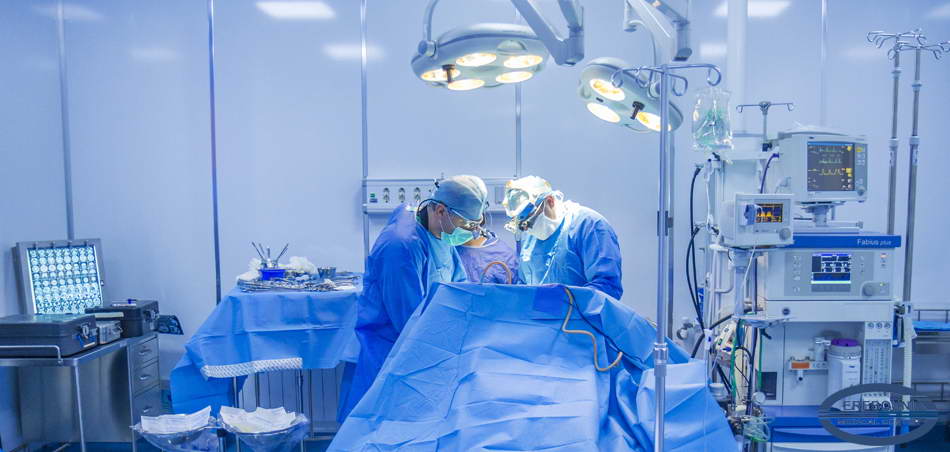The Department of Neurosurgery of Erebouni Medical Centre was founded in 1998. In 2000 it was integrated with the Department of Neurology, thereby creating a multidisciplinary neurological and neurosurgical clinic. In the Department of Neurosurgery of MC Erebouni more than 1000 surgeries are performed annually in various diseases of the brain and spinal injuries (traumatic hematoma, fractures and spinal injuries, tumors of the brain and spinal cord), the peripheral nerves and nerve plexus, brain vessels (endovascular treatment of vascular diseases of the brain).It is also performs the surgeries in diseases caused by degenerative changes of the spine: intervertebral hernias, spondylolisthesis, stenosis of spinal canal etc.
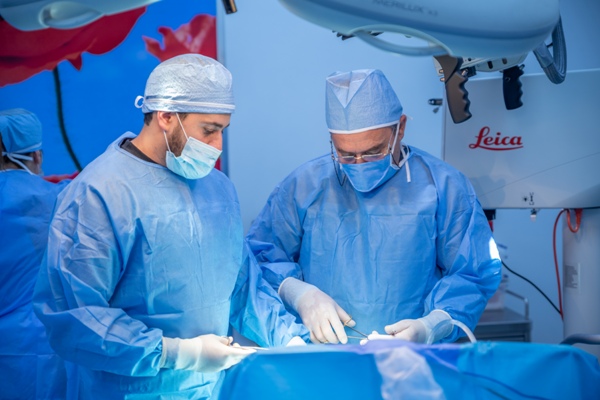
Diseases and conditions in which patients should apply to the Department of Neurosurgery are:
գ neurooncology (tumors of the brain and spinal cord, neuromas)
գ cerebrovascular disease (hemorrhagic, ischemic stroke, arterial aneurysm, arteriovenous malformation)
գ diseases of the brain with hydrocephalus syndrome
գ hernia intervertebral disks, ischemia of the nerve roots, spinal stenosis,
գ tunnel and pain syndromes
գ nerve plexus injury, nerve injury, spinal cord injury
գ craniocerebral injury, intracranial hematoma
գ anterior pain (prosopalgia), trigeminal neuralgia
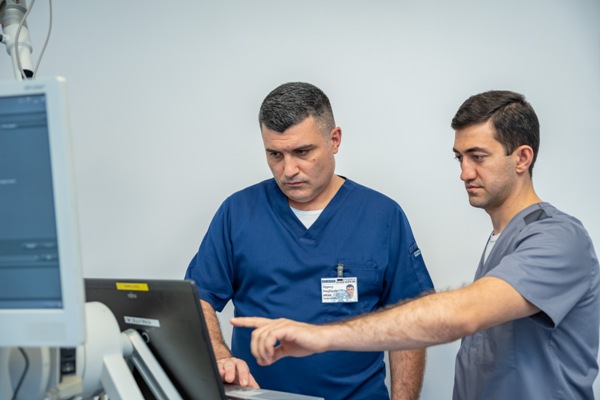
Brain tumors
Malignant or benign brain tumors can radically affect the human condition, both in terms of health and in terms of behavior. As a rule, if the tumor is located in an accessible for work of neurosurgeon place and a not interfere with the important parts of the brain it can be removed by neurosurgical intervention.
Accumulation of cerebrospinal fluid in the skull, so called Hydrocephalus can be as independent disease or occurs as a result of head injury. The most common procedure for Hydrocephalus treatment is a placement of the shunt in the brain, due to which liquid will flow to the abdomen.
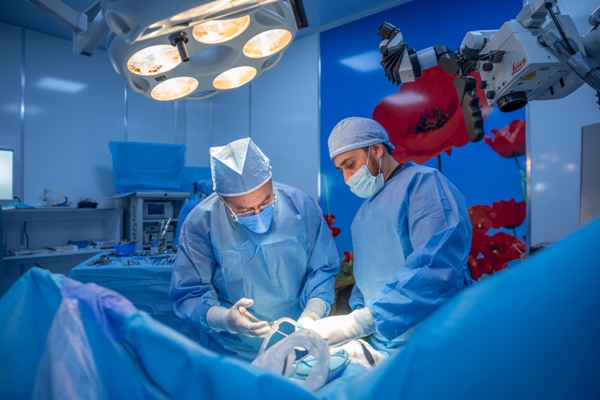
The pathologies of the spine
Serious spinal injury, herniated discs, fractured of the vertebrae requires neurosurgical intervention.
Epilepsy
In cases where drug treatment is useless, and the patient has an epileptic attack, the vagus nerve stimulator (VNS) is implanted by surgical intervention.
Effective cooperation with the departments of neurology, rehabilitation and physiotherapy ensures a comprehensive approach to the treatment of each patient.
All wards of the department are equipped with modern multi-functional beds, monitoring and communication systems. All patients before and after surgery are under the careful supervision of doctors and qualified nurses.
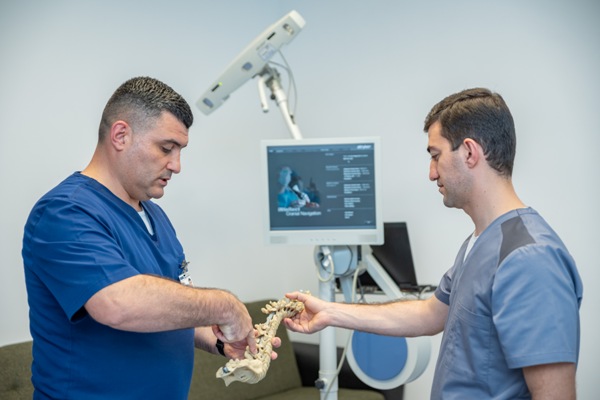
⤵
Neurosurgery Department has modern operating rooms with independent air conditioning and air purification systems, necessary video equipment, surgical optics, microtoolkit, X-ray with image intensifier, video endoscopic equipment from the leading manufacturers which allowing the use of the newest and most effective treatment of the brain and spine. Additionaly to it there are:
- Two CT scanners - Somoton Emotion 16
- MRI 3 Tesla
- Neuroendoscopy
- Digital X-Ray
- Sonography of the last generation
- Densitometer
- Electromyography
- Electroneurography
- Somatosensory evoked potentials,
- Electroencephalography
The department carries out the surgery in
| various injuries of the brain and spine | ||
|
||
| tumor of the brain and spinal cord | ||
| diseases caused by degenerative changes of the spine: intervertebral hernias, spondylolisthesis, stenosis of vertebral canal and others. | ||
| cerebrovascular diseases | ||
|
||
The department is planning the specialisation and other training programs for its staff, including introduction of new technologies in the practice of the department:
- the acquisition and implementation of neuroendoscopic system (for the surgery on the spine, brain and basal parts of the brain)
- upgrading the operating rooms with modern equipments according to contemporary requests (two operating theaters for open and endoscopic surgery)
- the acquisition and implementation of the ultrasonic aspirator
- the acquisition and implementation of the microscope
- introduction of pediatric neurosurgery (for children over 8 years) with licensing and personnel policy
- Creation of a multidisciplinary medical team to conduct transnasal surgeries (ENT, endocrinology, neuro-ophthalmologist)
- enhance cooperation with foreign neurosurgical centers, inviting leading experts to perform joint cases
In addition to the surgical intervention the conservative treatment of degenerative diseases of the spine are conducted as well. One of department's priority activities is "Endoecological Rehabilitation" or "Di bluden Therapy".
For patients with a diagnosis of "intervertebral hernia", which does not require surgical intervention to solve the basic problem of disco-radicular conflict the course of rehabilitation therapy for 17 procedures is prescribed . For postoperative patient the course of rehabilitation therapy is prescribed too but just for 10 procedures. The high efficiency of "Endoecological Rehabilitation" is proving by eliminating of inflammation, swelling, pain, local improve of hemodynamics, joint mobility normalization and vertical posture stability increase after therapy.


